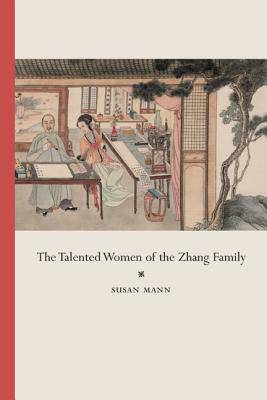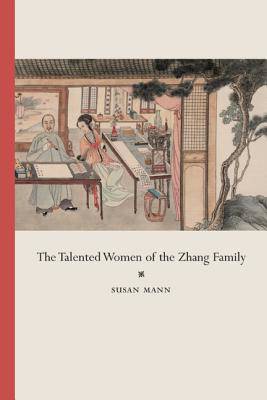
Door een staking bij bpost kan je online bestelling op dit moment iets langer onderweg zijn dan voorzien. Dringend iets nodig? Onze winkels ontvangen jou met open armen!
- Afhalen na 1 uur in een winkel met voorraad
- Gratis thuislevering in België vanaf € 30
- Ruim aanbod met 7 miljoen producten
Door een staking bij bpost kan je online bestelling op dit moment iets langer onderweg zijn dan voorzien. Dringend iets nodig? Onze winkels ontvangen jou met open armen!
- Afhalen na 1 uur in een winkel met voorraad
- Gratis thuislevering in België vanaf € 30
- Ruim aanbod met 7 miljoen producten
Zoeken
Omschrijving
The history of China in the nineteenth century usually features men as the dominant figures in a chronicle of warfare, rebellion, and dynastic decline. This book challenges that model and provides a different account of the era, history as seen through the eyes of women. Basing her remarkable study on the poetry and memoirs of three generations of literary women of the Zhang family--Tang Yaoqing, her eldest daughter, and her eldest granddaughter--Susan Mann illuminates a China that has been largely invisible. Drawing on a stunning array of primary materials--published poetry, gazetteer articles, memorabilia--as well as a variety of other historical documents, Mann reconstructs these women's intimate relationships, personal aspirations, values, ideas, and political consciousness. She transforms our understanding of gender relations and what it meant to be an educated woman during China's transition from empire to nation and offers a new view of the history of late imperial women.
Specificaties
Betrokkenen
- Auteur(s):
- Uitgeverij:
Inhoud
- Aantal bladzijden:
- 342
- Taal:
- Engels
Eigenschappen
- Productcode (EAN):
- 9780520250901
- Verschijningsdatum:
- 28/09/2007
- Uitvoering:
- Paperback
- Formaat:
- Trade paperback (VS)
- Afmetingen:
- 162 mm x 229 mm
- Gewicht:
- 566 g

Alleen bij Standaard Boekhandel
+ 93 punten op je klantenkaart van Standaard Boekhandel
Beoordelingen
We publiceren alleen reviews die voldoen aan de voorwaarden voor reviews. Bekijk onze voorwaarden voor reviews.











